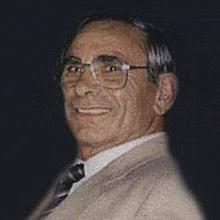Lopreato, Joseph

Bio: (1928-2015) American sociologist. Josef Lopreato was born in Italy, but emigrated to the United States at the age of 18 and received his doctorate in sociology from Yale University. He has taught at several American and universities in other countries. At the beginning of his career, Lopreato mostly dealt with problems of class and class structure, as well as class conflicts. In the second part of his career, from the 1980s, he became one of the most important advocates of the sociobiological approach in sociology. Sociobiology has a long intellectual prehistory, but it is mostly related to the work of Edward O. Wilson, who coined this term. Sociobiology is an interdisciplinary approach that is most prevalent in biology, anthropology, and psychology. In addition to van den Berghe, Lopreato contributed the most to the introduction of this paradigm in sociology.
Lopreato believes that there is great compatibility between sociobiology and some currents of classical sociological theory, especially with the theoretical approach of Wilfred Pareto. Sociobiology provides an opportunity to better understand and explain many areas: gender relations, marital and family patterns, domination and subordination relationships, reciprocity and exchange relationships, and mortality and fertility patterns. Lopreato proposes the introduction of a modified "maximization principle". This principle refers to the evolutionary strategy of all species to increase "inclusive fitness" over time, that is, the survival of those genes that gave some biological species the greatest chance of survival. In humans, culture becomes a very important mediator between biological evolution and natural selection. The emergence of the idea of the soul is a by-product of the sublimation of genetic activity into moral and altruistic activity. The idea of the soul, which is a type of self-deception, has enabled the emergence of altruistic behavior, without the emergence of purely altruistic genes in the human genome. Lopreato believes that mortality and fertility rates have always been very similar, throughout history, and in different societies and that this is a reflection of a genetically innate strategy that acts as a regulatory mechanism.
Fields of research
Altruism Classes Conflict Culture Domination Evolution Family Gender Human Nature Instincts Mobility, Social Morality Rural StatusTheoretical approaches
Sociobiology (Evolutionary Psychology)Main works
Peasants No More: Social Class and Social Change in an Underdeveloped Society (1967);
Class, Conflict, and Mobility: Theories and Studies of Class Structure (1972);
The Sociology of Vilfredo Pareto (1974);
Human Nature and Biocultural Evolution (1984);
Crisis in Sociology: The Need for Darwin (1999).

